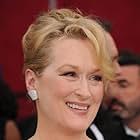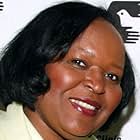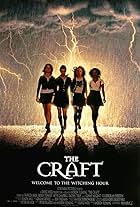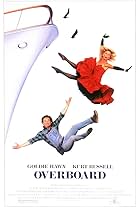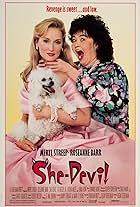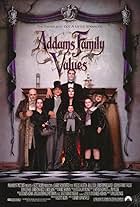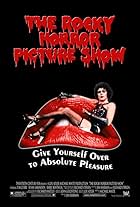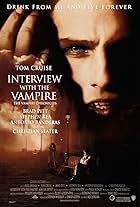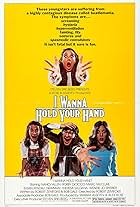When a fading actress learns of an immortality treatment, she sees it as a way to outdo her long-time rival.When a fading actress learns of an immortality treatment, she sees it as a way to outdo her long-time rival.When a fading actress learns of an immortality treatment, she sees it as a way to outdo her long-time rival.
- Won 1 Oscar
- 5 wins & 16 nominations total
Alaina Reed-Hall
- Psychologist
- (as Alaina Reed Hall)
- Director
- Writers
- All cast & crew
- Production, box office & more at IMDbPro
Storyline
Did you know
- TriviaMeryl Streep accidentally scarred Goldie Hawn's cheek with a shovel during the fight scene.
- GoofsAfter Madeleine drinks the potion, Lisle pins a 'brooch' to the right side of her dress. When Madeleine goes to the hall to leave it's on the left side of her dress.
- Quotes
Madeline Ashton: Bottoms up!
[Madeline drinks the potion]
Lisle Von Rhoman: Now, a warning.
Madeline Ashton: NOW a warning?
- SoundtracksMe
Written by Geoff Aymar
Lyrics by Martin Donovan & David Koepp
Arranged by William Ross
Performed by Meryl Streep (uncredited)
Featured review
Robert Zemeckis is not my favorite director, "Contact" notwithstanding. There's nothing wrong with his movies; they're just fluffy. "Back to the Future" had an exhilarating two-billion-thread plot, but a disappointing moral climax-Marty's reengineered past creates an alternate present where his family is wealthy and the thing he covets most, a 4x4, is in the garage. (Such was our national mood--blame Reagan.) And "Forrest Gump", a decent and poignant melodrama, tried to be a satire too but instead of knowing commentary it delivered cliches (John Lennon on the Dick Cavett show answers questions using only lyrics from "Imagine"; an anti-war protester at a Washington rally makes his case before the crowd with the argument "Viet F...in' Nam!").
On the other hand, Zemeckis directed this, one of the great black comedies of the '90s. "Death Becomes Her" is a delicious, well-observed satire about makeup, makeup and more makeup. In Hollywood, if you're old you're run out of town on a rail and Meryl Streep's character is horrified that her body is going south. Streep has great comic timing (this role and her role in "Postcards from the Edge" are too-infrequent examples of it) and she makes a believable ogre of Madeline Ashton, a Streisand-esque demon. As the film begins in 1978 Madeline is onstage in a Broadway musical version of "Sweet Bird of Youth", hilariously retooled as an unironic paean to her girlish looks (she sings the unforgettable "I See Me" to her own reflection). Helen Sharp (Goldie Hawn) and her fiancee Ernest Menville (Bruce Willis) are in the audience, and after the show Madeline greets old friend Helen backstage, and promptly steals Ernest away from her for marriage. Flash forward seven years; Helen is overweight, living alone with dozens of cats and endlessly rewatching movie star Madeline being murdered in a scene from one of her films. She is evicted and arrested but in jail she hits on an elegant solution for eliminating Madeline from her mind: eliminating her.
Flash forward to 1992 Los Angeles; has-been Madeline is caking on makeup and scheduling multiple face-lifts to fend off the inevitable. Ernest, formerly a plastic surgeon with a promising career, is now a mortician who dresses and retouches the best-looking corpses in the business. (His secret: spraypaint.) No sooner has Madeline rediscovered a drop-dead gorgeous Helen--looking impossibly young and voluptuous at her own 50th birthday party--then she panics and becomes desperate for a quick fix for her fading looks. She ends up in a mysterious Hollywood mansion with a sorceress (Isabella Rossellini) who gives her a magic potion granting eternal youth. Meanwhile Helen seduces Ernest and enlists his help in murdering Madeline. But comes a twist (literally) and suddenly Madeline gets a looks at immortality, and her own rear end, following a nasty fall down a staircase.
All the actors shine here. Goldie Hawn is hilarious. Bruce Willis, an underrated comic actor, is goofier than he's been since "Moonlighting". Sydney Pollack does a virtuoso one-take cameo as a doctor who loses it after examining a dead-but-still-breathing Madeline. There are a lot of twists and surprises, not the least of which is that the FX get some of the biggest laughs. With technology these days being so good FX often slip invisibly into the background, this movie flaunts its CG-manipulated human bodies as something to goggle at.
Zemeckis' usual trademarks are here, including elaborate tracking shots in expositional scenes and the use of mirrors to combine on- and off-screen space (in this movie about vanity there is a surplus of mirrors, one in practically every scene). The movie was written by Martin Donovan and David Koepp (they cowrote "Apartment Zero"; Koepp wrote "Jurassic Park" and its sequel). The mordant, sour-as-kumquats score is by Alan Silvestri ("Back to the Future", "Who Framed Roger Rabbit"). The special effects were produced by Industrial Light and Magic.
On the other hand, Zemeckis directed this, one of the great black comedies of the '90s. "Death Becomes Her" is a delicious, well-observed satire about makeup, makeup and more makeup. In Hollywood, if you're old you're run out of town on a rail and Meryl Streep's character is horrified that her body is going south. Streep has great comic timing (this role and her role in "Postcards from the Edge" are too-infrequent examples of it) and she makes a believable ogre of Madeline Ashton, a Streisand-esque demon. As the film begins in 1978 Madeline is onstage in a Broadway musical version of "Sweet Bird of Youth", hilariously retooled as an unironic paean to her girlish looks (she sings the unforgettable "I See Me" to her own reflection). Helen Sharp (Goldie Hawn) and her fiancee Ernest Menville (Bruce Willis) are in the audience, and after the show Madeline greets old friend Helen backstage, and promptly steals Ernest away from her for marriage. Flash forward seven years; Helen is overweight, living alone with dozens of cats and endlessly rewatching movie star Madeline being murdered in a scene from one of her films. She is evicted and arrested but in jail she hits on an elegant solution for eliminating Madeline from her mind: eliminating her.
Flash forward to 1992 Los Angeles; has-been Madeline is caking on makeup and scheduling multiple face-lifts to fend off the inevitable. Ernest, formerly a plastic surgeon with a promising career, is now a mortician who dresses and retouches the best-looking corpses in the business. (His secret: spraypaint.) No sooner has Madeline rediscovered a drop-dead gorgeous Helen--looking impossibly young and voluptuous at her own 50th birthday party--then she panics and becomes desperate for a quick fix for her fading looks. She ends up in a mysterious Hollywood mansion with a sorceress (Isabella Rossellini) who gives her a magic potion granting eternal youth. Meanwhile Helen seduces Ernest and enlists his help in murdering Madeline. But comes a twist (literally) and suddenly Madeline gets a looks at immortality, and her own rear end, following a nasty fall down a staircase.
All the actors shine here. Goldie Hawn is hilarious. Bruce Willis, an underrated comic actor, is goofier than he's been since "Moonlighting". Sydney Pollack does a virtuoso one-take cameo as a doctor who loses it after examining a dead-but-still-breathing Madeline. There are a lot of twists and surprises, not the least of which is that the FX get some of the biggest laughs. With technology these days being so good FX often slip invisibly into the background, this movie flaunts its CG-manipulated human bodies as something to goggle at.
Zemeckis' usual trademarks are here, including elaborate tracking shots in expositional scenes and the use of mirrors to combine on- and off-screen space (in this movie about vanity there is a surplus of mirrors, one in practically every scene). The movie was written by Martin Donovan and David Koepp (they cowrote "Apartment Zero"; Koepp wrote "Jurassic Park" and its sequel). The mordant, sour-as-kumquats score is by Alan Silvestri ("Back to the Future", "Who Framed Roger Rabbit"). The special effects were produced by Industrial Light and Magic.
Details
- Release date
- Country of origin
- Language
- Also known as
- La muerte le sienta bien
- Filming locations
- Production company
- See more company credits at IMDbPro
Box office
- Budget
- $55,000,000 (estimated)
- Gross US & Canada
- $58,422,650
- Opening weekend US & Canada
- $12,110,355
- Aug 2, 1992
- Gross worldwide
- $149,022,650
- Runtime1 hour 44 minutes
- Color
- Sound mix
Contribute to this page
Suggest an edit or add missing content
















